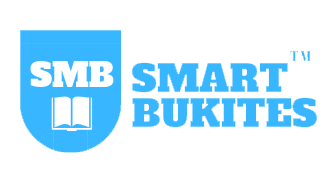
Thinking of how the final NHEF Interview questions are going to be like?
As the last phase of the selection process approaches, it is wise for applicants to prepare for their interview. This article will give you an insight into possible NHEF Interview questions. With this guide, you will maximize your chances of getting selected for the fully-funded NHEF Scholars’ Program!
How is the NHEF Scholarship Interview Conducted?
Afraid you might not be able to travel for a physical interview anytime soon? Don’t worry; there’s no need for traveling or other expenses when preparing for the NHEF interview!
The interview is usually an audio call. Applicants would be prompted to select an appropriate time he/she is more comfortable with. When it is about fifteen (15) minutes to the time, ensure you are in a comfortable and quiet place with a stable network. Calm your nerves and focus on being yourself.
The following are Frequently Asked NHEF Interview Questions, each with a suggested response.
1. “Tell me about yourself”
This is frequently asked at the beginning of an interview to get the conversation rolling. There is no right or wrong way of approaching this kind of question. It all depends on your interviewer. Devise a method of giving your response for clarity. There are two common techniques of organizing your response:
- Past, Present, Future
- Present, Past, Future
From the above, pick the one you feel more comfortable with, while highlighting your interests and how they align with the NHEF objectives (e.g social impact, leadership potential, academic zeal, etc.).
Example:
My name is Kamal Usman, I was born and brought up in Adamawa State, Nigeria. Since primary school, I have been passionate about helping my friends and colleagues with their classwork and homework.
During my high school days, this help was extended to my community, especially during the holidays. I helped less privileged children that could not afford to go to a good school to study and share information. During that time, I was able to create my portfolio by offering special tutorials to students who needed it. (Past)
Currently, I’m pursuing a degree in Mathematics Education. I tutor my colleagues whenever I have the chance. I engage in extracurricular activities such as creating awareness in nearby communities about the importance of female education in Nigeria. (Present)
Moving forward, I would love to be selected into your program to acquire the necessary skills to continue helping students achieve their dreams. Hopefully, I’ll use my skills to foster education in Nigeria. (Future)
Importantly, “Tell me about yourself” is just a portion you want your interviewer to remember about you. Answering it well gives you the confidence to structure the rest of the interview to your benefit.
Avoid mentioning private or sensitive personal information like religious views. Desist from listing vague strengths without supporting examples. Do not rush into the conversation. Use simple English and do not try to over-emphasize your use of words.
Kamalluddeen Usman
2. Behavioral and Experience-related Questions
These are questions that focus on how you dealt with different work situations to ascertain your skills, personality, and ability. This is what sets apart the last phase of the selection process to be unique. Example of such NHEF interview questions are;
- Tell me about how you worked effectively under pressure in school?
- How do you handle challenges?
- While working in a team, have your suggestions been turned down? How did you handle that?
- Give an example of a goal you reached and how you achieved it.
- Why should we select you to be part of the program?
With these kinds of questions, your interviewer is trying to know how you react in reality. They want to measure the value you added while in those situations as well as gauge how you handle stress..
How to Answer Experience-related and Behavioural Questions
Your success in answering these kinds of questions depend on your body language and prior experience . There is no right or wrong way to answer them. Different things work for different people. The important thing is to be honest, and structure your response in such a way that it communicates what you have to offer effectively.
Use the STAR technique to structure the flow of your response to behavioural questions.
S- situation
T- Task
A- Action
R- Result
Situation
Here, you start by telling your interviewer the context of your story. Assuming you were asked, “While working in a team, how did you motivate your teammates to push further while they are losing interest?” For instance. Start like this…
Your response
“There was a teamwork in which we were asked to research the application of magnetic materials to computers and explain with a PowerPoint slide to the class…”
Task
This is where you highlight your responsibilities within the team. Many times, it is mistaken with action.
Your response
“As someone good with creating PowerPoint slides, I was tasked to create one after compilation of the research”
Action
Now that you have given the context and the task, your interviewer will have a picture of what went down in his mind. It is time to tell your interviewer what you did to create a difference.
Your Response
“To complete my task, there was a need for all of us to present our findings. A lot of my teammates complained of little or no resources online and they were not putting in more effort to search. Therefore, I visited the library and found a lot of resources like journals, publications, and books which will help our research.”
Result
Here, you explain how the action you took makes a difference within the team. Make sure the outcome is positive.
Your response
“As a result of the resources I obtained from the library, my teammates were able to compile a good research paper and I came up with a nicely designed PowerPoint slides in which we were able to explain effectively to the class.”
3. Scenario Questions
These are questions that require you to describe how you might respond to hypothetical situations in the future. These questions are asked to test your thinking capabilities and analyze how you solve problems. There are no right or wrong answers to them.
Just be sure you understand what you were asked and how best you can tackle the issue at hand. Example of scenario-based questions are:
- If you are a business owner and your business is failing, what would you do to increase profit? Reduce the prices to finish the product or increase the prices to maximize profit?
- What would you do if you are not selected for the NHEF program?
- As the manager of a company, what would you do if your staff disagrees with your own opinion??
4. Dreams
There is a possibility of your interviewer asking what your dreams are, or where you see yourself in the next 5 or 10 years to come. Try and relate what you will gain if selected in the NHEF program as part of the things that will help you achieve your dreams.
Example:
“Since the start of my studies in the university, I’ve always had my ideal career path in mind, and it is in line with NHEF objectives. My ideal career is one where I teach/lecture students in such a way that I can make a tangible impact in the society. I can see myself further developing my skillset if selected to be part of the program and eventually having more mentoring tasks… I look forward to being more confident in this field, with more knowledge and experiences. Hopefully, I want to grow with the acquired skill set and lead others in reaching their dreams.”
Summary of the NHEF Interview Questions
Devise a method of giving your response for clarity. They are two common ways of organizing your response.
– Past, Present, Future
– Present, Past, Future
With this kind of question, your interviewer is trying to know how you react in reality, they want to measure the value you added while in that situation.
Use the STAR technique to structure the flow of your response to behavioural questions.
S- situation
T- Task
A- Action
R- Result
These are questions that require you to describe how you might respond to hypothetical situations in the future. Just be sure you understand what you were asked and how best you can tackle the issue at hand.
Try and relate what you will gain if selected in the NHEF program to be part of the things that will help you achieve your dreams.
Thats’s it! The NHEF interview questions are simple but very professional and tricky.
While taking an interview, a direct answer is always the best approach but back it up with supporting points. Calmness, composure, and confidence will take you a long way.
Whether you’re applying for a scholarship, an internship or even going for a job interview, it is very helpful to keep the above tips in mind. Good luck in your next round of Interviews!
Still Haven’t Applied for the NHEF Scholars’ Program?
Are you a student in your penultimate year (3rd year or 4th year) in an NHEF Partner university?
Don’t miss the chance to boost your career and leadership skills with the NHEF Scholarship! Learn how to secure your slot with a strong application for the 2023 NHEF Scholarship.
NOTE: Deadline is 11:59pm on 12th May, 2023.
You Might Want to Check Out:
Author
Kamalluddeen Usman is the Chief Operations Officer and Co-founder of SmartBukites. Kamalludden believes that the right support, materials, and resources should be made available to improve student learning, attitude to self-pace programs, use of technology, and creating social impact and change.

